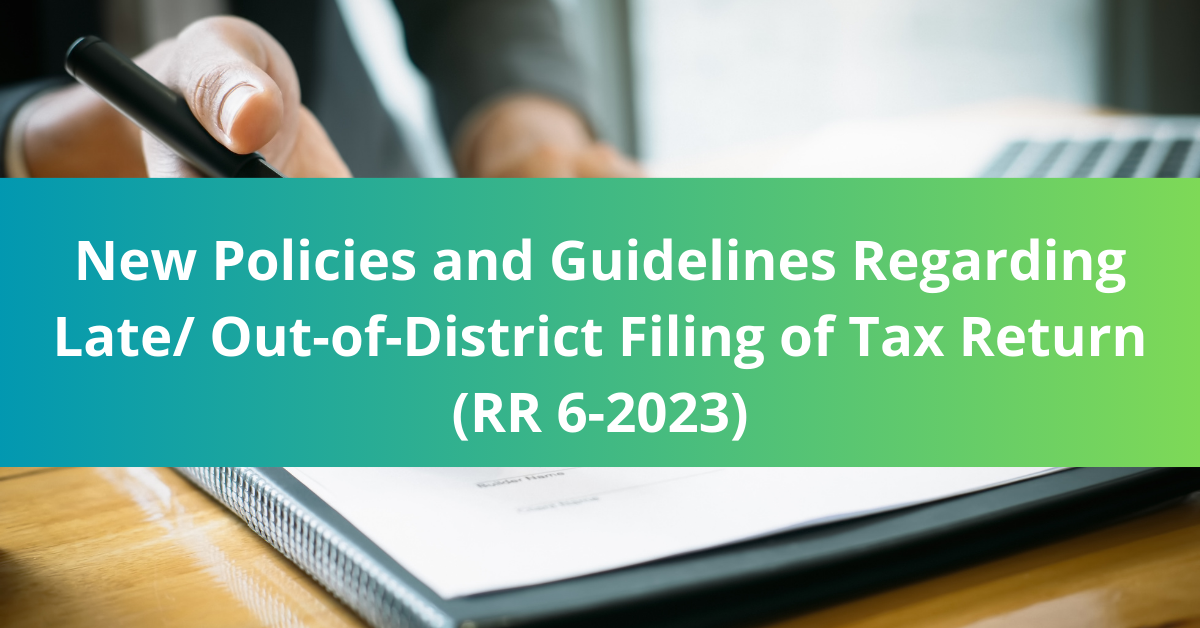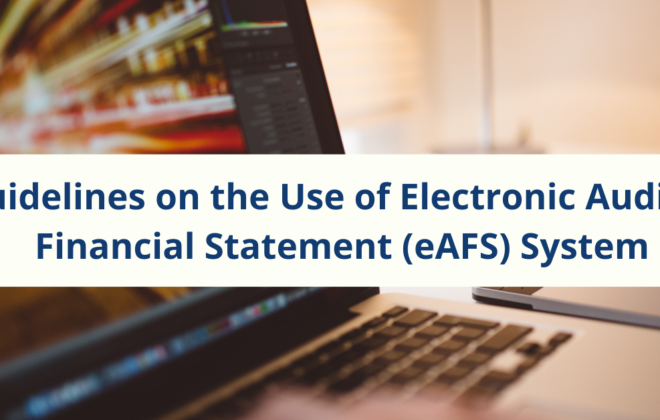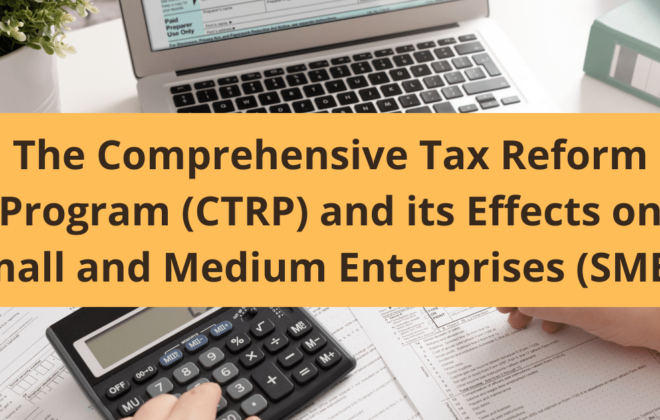New Policies and Guidelines on Late/ Out-of-District Filing of Tax Return (RR 6-2023)
The government is committed to tackling tax fraud, tax evasion, and other violations of the National Revenue Code (NIRC). New regulations have been enacted to support these objectives and assist the Bureau of Internal Revenue in enforcing the Act.
Revenue Regulation (RR) 6-2023 is issued to lay down stricter rules and guidelines for the acceptance of late and out-of-district tax returns.
Late Return
- A late return is a tax document submitted after the date specified by the NIRC and related rules.
- If a taxpayer submits a tax return with a check payment on the due date but the tax office receives it after the cut-off or clearing time, and it’s recorded in the Batch Control Sheet on the following working day, it won’t be considered a late return or late payment.
Out-of-District Return
- An out-of-district return is a tax document filed in a location different from the jurisdiction of the taxpayer’s Registered District Office (RDO), Large Taxpayer District Office (LTDO), or Large Taxpayer (LT) Division, as required by the NIRC and related rules
Latest Guidelines on Late and Out-of-District Tax Returns
Late Filing of Tax Returns
We’ve all been there—life is busy, and sometimes we miss deadlines. But when it comes to tax returns, the BIR takes it seriously. The general rule is that Revenue District Officers, Authorized Agent Banks (AABs), Large Taxpayers Division Officers (LTDOs), and other internal revenue officers cannot accept late tax returns without penalty.
What does this mean? If you’re running a business or dealing with your taxes, you should make every effort to file your return on time. Late tax returns, with any additions, will then be marked “Late Filed” or “Late Filed, No Increment Paid” before being accepted by the relevant BIR officials.
Before any tax settlement, these officers will calculate the corresponding penalty based on tax laws. So, staying organized and meeting those tax deadlines is important.
Out-of-District Filing of Tax Returns
Let’s talk about where to file your taxes. Per tax rules, the tax return must be filed with the AAB or the Revenue District Office (RDO) where the taxpayer is registered. This is the default approach.
However, there are some exceptions. If the RDO or AAB inadvertently or mistakenly accepts a tax return outside the district, it will be subject to a penalty of 25% for the wrong destination. This is a reminder that it’s important to double-check where you’re paying taxes to avoid unnecessary penalties.
But here’s the interesting part. Sometimes, the BIR issues a declaration or bank statement authorizing taxpayers to file their tax returns and pay taxes anywhere in the Philippines This usually happens during the annual income tax return in April. So, if you qualify for this exemption, you have a lot of flexibility in choosing your filing location.
Reporting Requirements
For all late and out-of-district filed tax returns, reports must be prepared. These reports should be submitted every 30th day of the month to the Office of the concerned Regional Director/Assistant Commissioner, Large Taxpayer Service, for proper action.
This reporting step is essential because it helps the BIR track and manage late filings and out-of-district submissions. It ensures that the appropriate penalties are imposed and that the tax collection process remains fair and transparent.
Stay Compliant
The recent update in Revenue Regulation (RR) No. 6-2023 brings important changes to how late and out-of-district tax returns are handled. It emphasizes the importance of timely filing and correct venue selection, while also providing some flexibility when authorized by the BIR.
Remember to mark those tax deadlines on your calendar, double-check your filing location, and be aware of any pronouncements from the BIR that might affect your tax filing process. Stay informed and compliant to avoid unnecessary penalties.
—————-
If you’re looking for smarter ways to streamline your tax compliance, our team at DJKA Business Solutions, Inc. is ready to help.
By entrusting your tax compliance needs to a reliable partner, you can focus on what you do best – running your business, coming up with great ideas, or just simply enjoying life.
For more information, just email us at info@djkaaccounting.com
Related Posts
Recent Posts
- How to Process the Sworn Declaration Required by BIR for Electronic Marketplace Sellers
- Understanding Tax Compliance for e-Marketplace Businesses
- Who Needs to Submit GIS to the SEC?
- Understanding these Financial Ratios for Business Decision-Making Purposes
- What you Should Know about the Ease of Paying Taxes Act





